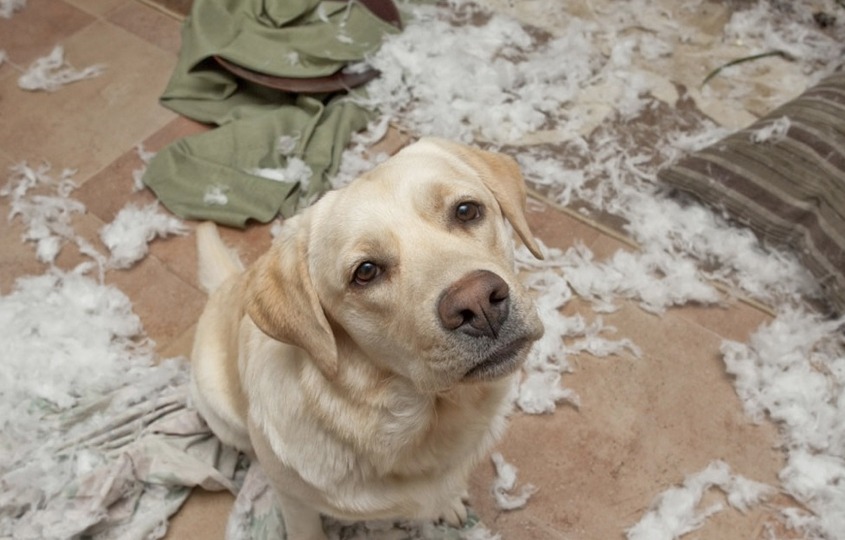First off, don’t fall into the trap of interpreting your dog’s behaviour in human terms. You are dealing with a dog, another life form who doesn’t know your verbal language nor function biologically the same as you do. So, when you yell at your dog and ask why, the chances are high that your dog won’t be able to answer you directly. That’s why we are here trying to shed some lights on what goes through a dog’s mind.
Why does my dog chew my stuff? Is she getting back at me for leaving her alone at home for too long?
If you are talking about grown-up dogs, not puppies who chew on objects to relieve the pain caused by a new set of teeth coming out, they could do so out of anxiety and frustration. In dogs’ world, there is no retaliation which is more of a human characteristics. Assuming your dog has done this to you because he is angry is a huge misunderstanding.
Separation anxiety manifests itself in many ways. Mildly affected dog might seek to an object that is very “you”, a shoe, a shirt, a pillow that has your scent on, and try getting close to you through his art of chewing on your stuff just to endure your absence. What you see as retaliation, your dog calls it devotion. Why don’t you keep those temptations out of his reach, give him chewing toys for mental stimulation, sufficient exercise and play time together?
Why does my dog pee and poo outside of the designated area which he used to know well?
Most dogs don’t release themselves on a dirty wee wee pad or anywhere filthy. Making sure the area your dog is supposed to do his own business clean, and big enough to do it a few times if you are away for a long time.
Occasionally if accidents happen, more housetraining can help. A lot of circumstances would prompt accidents more often, such as change of environment. Positive reinforcement technique for your dog to learn the wanted behaviour is recommended. Give your dog a treat and pair it with a gentle rub on his head or soft-spoken loving compliment of “good boy” upon his business properly done. This is effective simply because dogs learn by association. They usually behave well on reward basis.
